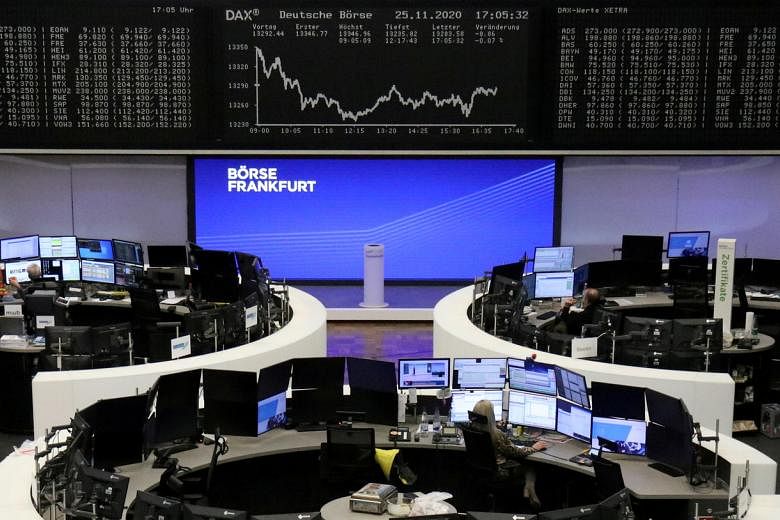LONDON (BLOOMBERG) - The pressure on money managers is ramping up as the industry's record-low fees are set to be squeezed even further in 2021.
More than half of asset managers plan to reduce charges next year, according to a survey from Brown Brothers Harriman out on Tuesday (Dec 8). Average fees in Europe have already hit a record low, as the rising popularity of cheap passive products increases competition, Morningstar said in a separate report.
As investors yank money out of actively managed funds and park it in cheaper passive funds, the average fee paid in Europe has plunged nearly a third since 2013 to 0.69 per cent, Morningstar said. The pressure on fees and assets is likely to mean more pain for active managers and drive further consolidation in the industry.
"Managers need to reflect and take a hard look at themselves," said Shawn McNinch, managing director of investor services and head of US sales at Brown Brothers Harriman. "The challenge for mid-sized managers is to really focus on where they're different and where they can add value."
Within the cheapest 25 per cent of funds in Europe, passive ones saw inflows of 10.1 billion euros (S$16.34 billion) this year through October, compared with outflows of two billion euros in active funds, according to Morningstar. The drop in fees was led by passive funds, with increased competition for assets also forcing fees of exchanged-traded funds lower.
The average fees charged by a growing cohort of funds taking into account environmental, social and governance factors are also undercutting their non-ESG peers, Morningstar said.
Even passive fund specialist Vanguard Group, which amassed US$6.3 trillion (S$8.4 trillion) on a once-contrarian idea that it could thrive by cutting costs for investors, is feeling the toll of such a price war. Net flows to Vanguard's funds have slowed in 2020 as rivals roll out similar products, and the company has retreated in recent months from some of its global expansion plans.
The competition has already driven some active managers to join forces, with Franklin Resources buying Legg Mason this year. Yet the results of such consolidation have been mixed, with Janus Henderson Group and Standard Life Aberdeen failing to staunch outflows since their mergers three years ago.
More than a third of managers in the Brown Brothers Harriman survey, involving over 50 executives overseeing US$18 trillion, said they would explore starting new passive or exchange-traded funds (ETFs), which are cheaper and could help them recoup some of the money that's being pulled from active funds. That's a complete shift in mindset for Mr McNinch.
"People are looking at ETFs differently than they were five years ago," he said. "Now managers are really embracing ETFs as a structure itself, because they can create active products within those."

